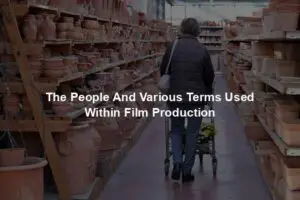
Depending on the project you want the voice recording for, there are a lot of things that one must consider when looking for voice artists. Looking for voice artists for a particular project is what we term as casting auditions. This is when you get a few talents showcasing their capabilities and capacity to deliver in front of casting directors or talent managers.
Different production companies or clients usually have their own ways to carry out the auditions. There is really no standard way to do it, but there are ways that are more effective than others and that is what we will look at in this article.
As the voice-acting industry grows, more ways to get the best voice actors are always being introduced and one of them is custom casting auditions. These are auditions that are held specifically for a particular project or a particular form of voice over.
As I mentioned before, different production companies have a specific way of casting for their voice talents. Custom casting auditions are formulated to make the whole process easy and straight to the point. They help you get exactly what you are looking for, as a casting director. There are projects that need a very rigorous and hands-on voice talent casting, and in such a case getting one without a custom casting audition would be hard. A good example would be a company looking for specific voices for their advertising purposes to appeal to an international market, in this case, they must get voice artists with great resting tones, acting range and technical skill to do all the recordings. If you are looking for voice artists for a dubbing project, you must ensure you get voice actors who will bring out their character’s personalities in the best way. A pre-recorded sample may not have all the information these clients need to pick their voice artist, and that is where custom auditions come in handy.
Custom auditions are also great for projects with multiple levels of casting review. It’s difficult to get stakeholders to approve foreign-language voice-over talents based on pre-recorded samples, especially since they may not extrapolate a final performance from them. A custom audition that allows stakeholders to hear their project’s text will often help to expedite this process. The audition sample can be used as a baseline for direction in the studio session.
With that said, we will look at how you can create a specific custom audition for a big project. Keeping in mind that they can be costly, with these steps, you will get one that works well for you without straining your pockets.
1. Minimize the audition text.
It’s very easy to get compelled to have the talents auditioning, reading the whole script so you can have a great idea of what they can do and what they can’t. Reality is that this will end up either taking too much time and you might end up not auditioning all the talents or getting what you were looking for. If you have different aspects of a 30 minuted or 1-hour script that you would love to be recorded, it would be advisable to get the most important bits and have them cut down to 2 minutes or 5 minutes and have it customized for the auditioning stage. This makes sure that you can see the range in which a voice talent can perform depending on the different aspects of your custom script. You will also save on a lot of time that you would have wasted giving talents a 30-minute script to read through. Another reason is that the talents could focus more on a shorter script and bring their A-game when auditioning. Long scripts have a way of confusing someone and making them nervous, which means they won’t perform to the best of their ability. Reviewing multiple auditions is very time-consuming and difficult to track–and more so, if the samples aren’t concise. For the sake of quality and expediency, keep audition scripts to 100 words or fewer.
2. Be sure to include every important aspect of your minimized text.
A lot of casting directors usually make this mistake, and it ends up messing them up in the long run when it’s time to bring their project to life. When minimizing the audition text will include different and important aspects of the original project that you will work on. This is important because when choosing a voice artist you will cast them according to how they perform on the audition text so if it’s not in line with what the main project is, you might end up casting the wrong talent. The script must include all beats, tone and shifts and any element you might need for your main project.
A good example to show you what it is I mean: You cannot be cast for a cooperate project and use an entertainment or music kind of text for your auditions. Your auditioning text must be in line with what the original project you are casting for is. Doing this will really save you a lot of time and money. You don’t want to make a mistake and cast the wrong voice actor and end up re-doing the whole audition process. Also, if you are auditioning for a dubbing project, you must be sure to look out for the change of character and personality of your main character in the voice actor and see if they can handle both aspects. For example, if your principal character goes from naïve to cynical during the series run, you’ll want to hear both tones in the custom audition.
3. Be specific on the performance and beat changes by adding notes about them.
Depending on how your original script is, note down all the expectations you have of the talent during the audition. If, according to your script, the character has to switch from one emotion to another and you want the voice actor to showcase that in their audition, be sure to note it down and ask them to do it during their audition. Noting down all these major aspects of your script will help you remember what exactly you are looking for because it might slip your mind during auditions and you might end up casting a voice talent whose capacity and range don’t cut across perfectly.
4. Include translated forms of your original script.
I have seen casting directors who ignore this step and end up asking the voice talent to do a direct word to word translation while auditioning. Translating a script is your job as the production company, the work of a voice-talent is to come in and read out loud the scripts you give to them. You should know if you are getting a professional translator this will be costly, so you need to be ready financially for this step. It simplifies a lot of things because once you have your script translated for the custom auditions, you will have them ready for the dubbing process so you won’t have to incur more expenses.
5. Involve your in-country partners or stakeholders.
This goes without saying when you are casting for a voice talent for a localization project you should include the big bosses as I like to call them. These might be your partners or stakeholders in the project you are working on. An in-country contact may pre-translate the audition script. They can also provide audition performance notes that are attuned to their specific culture or language. They are the ones who know what is and what is not offensive in their culture, what is and what is not right in their culture. You don’t want to end up offending a particular culture when you are trying to get them on board and support you just because you were not keen enough to have someone from their culture give a go-ahead during your translation process. Also involving your partners and stakeholders only mean that once you all agree to cast a particular voice talent, there is no going back on that.
If you follow all these steps, you will come up with a custom casting audition for your project and make the whole process super easy and even fun for both you the casting director and the voice talents.







